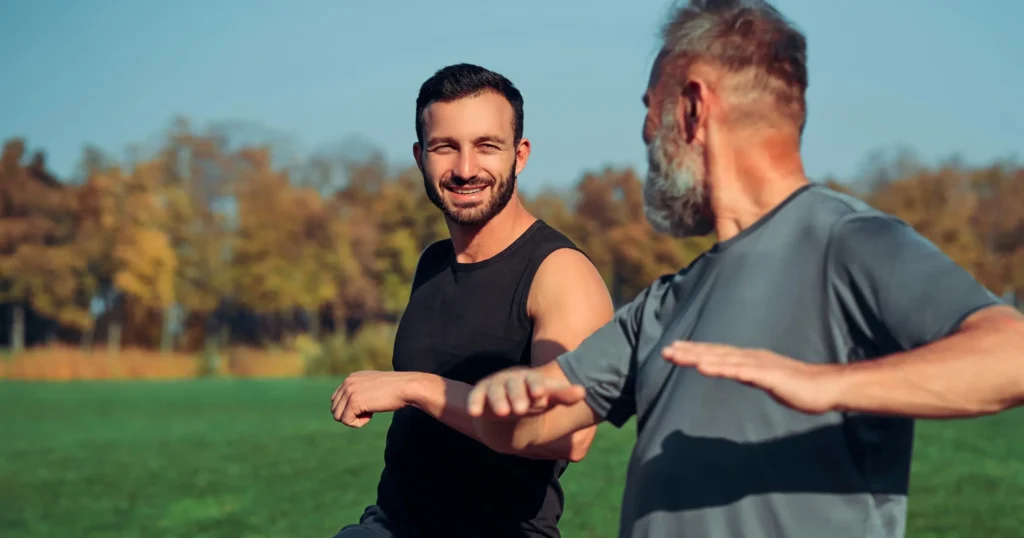TRT – Separating Fact From Fiction
Common Myths About Testosterone Replacement Therapy (TRT)
If you are considering Testosterone Replacement Therapy (TRT), it’s important to understand the facts. TRT has multiple benefits and helps countless men, but there's a lot of misinformation out there about the treatment. Urban TRT is run by UK doctors who are experts in men's health. In this article, we address some of the most common TRT myths and misconceptions.
Myth : TRT is illegal in the UK
Fact: Testosterone Replacement Therapy is completely legal in the UK, on prescription from a qualified doctor.
Historically, testosterone has been misused by athletes and fitness enthusiasts, leading to possible concerns about its legality. Confusion has sometimes arisen between using illegal steroids for body building and taking testosterone replacement medication.
Using TRT to treat hypogonadism (low testosterone), under the supervision of a qualified doctor, is completely legal in the UK.
Myth : TRT causes men to grow breasts
Fact : Gynecomastia (or the development of "man boobs") is a condition caused by a hormonal imbalance. This can be avoided by including additional medication in your TRT protocol.
Gynecomastia is a medical condition in which excess oestrogen can lead to the development of breast tissue in men. This is a rare side effect for men on TRT. Our doctors monitor your hormone balance regularly during testosterone treatment and can prescribe medication to manage any excess oestrogen alongside TRT.
Myth: TRT makes you aggressive
Fact : TRT is associated with positive mental health outcomes for men with low testosterone levels.
This myth comes from confusing steroid abuse with properly administered testosterone replacement therapy. In reality, TRT has been shown to have positive mental effects on men suffering with low testosterone. This can include improved mood, increased energy, reduced fatigue, stronger libido, and improved concentration, without causing aggression.
Myth: TRT will make you bulk up like a bodybuilder
Fact : TRT can increase muscle mass, but you will still have to train.
If you are struggling with low testosterone, TRT can help increase your muscle mass, even without regular trips to the gym. It's a common misconception, however, that TRT has the same effect as steroids. It won't transform you into a bodybuilder, without significant training and effort. A healthy diet and regular exercise are essential for achieving noticeable muscle definition.
Myth : TRT increases heart disease risk
Fact : Recent studies have shown that TRT does not increase the risk of heart disease or stroke.
New research published in the New England Journal of Medicine and reported by the Cedars Sinai Hospital has shown that a study of 5200 men aged 45 to 80 with low testosterone had no increased risk of heart attack or stroke, compared to a placebo.
If you have any cardiovascular risk factors, you should discuss this with your doctor at your initial consultation.
Myth : Low testosterone is a natural part of getting older
Fact : Everyone experiences a decline in testosterone levels as they age, but there's no need to suffer with the symptoms of this.
Studies show that 1-in-4 men over 40 in the UK have low testosterone levels or hypogonadism. There has also been a population-level drop in testosterone levels, measured since the 1970s. Modern medical advances mean that there is no need to put up with the depressing and debilitating symptoms of low testosterone. If you suspect your levels might be low, start by taking our ADAM test.
Myth : TRT shrinks testicles
Fact : TRT could lead to a reduction in testicle size, but at Urban TRT we can prescribe medication to prevent this.
When doctors prescribe TRT without additional medication, in some cases men may stop producing their own testosterone. This can lead to a reduction in the size of your balls, also known as testicular atrophy. To help prevent this, our doctors can prescribe medication to maintain natural testosterone production alongside TRT. This approach can also help to protect your sperm count and fertility.
If you are concerned about this issue, please discuss it with your doctor during your initial or follow up consultations.
Myth: TRT cures erectile dysfunction
Fact: Erectile dysfunction is a complex issue with many causes. TRT can potentially improve erectile function in men with low testosterone.
TRT is helpful in increasing libido in men with low testosterone and can improve some forms of erectile dysfunction (ED). ED has many potential causes however, including depression, blood pressure issue and other medical concerns. Discuss your situation with your doctor to determine whether TRT is the right option for you.
Myth : TRT causes prostate cancer
Fact : The latest studies show that TRT does not increase the risk of prostate cancer in men on medically supervised TRT programmes.
According to Harvard University Health Publishing 2023 study of over 5000 men in the USA (by JAMA Network Open), has confirmed earlier research showing that TRT in men with hypogonadism (low testosterone levels) does not increase their risk of developing prostate cancer, compared to men not using TRT.
Men with prostate cancer are advised to avoid TRT, and you should always consult your doctor if you have any prostate health concerns. You will be required to have a PSA test before starting treatment, after which we can assess your prostate risk.
Myth : TRT makes you bald
Fact : In our experience, TRT does not directly cause hair loss.
The causes of baldness are complex, including stress, illness, environmental factors and genetics. Individuals with a genetic susceptibility to male pattern baldness, can see an increase in hair loss while on TRT. This is because TRT can increase the activity of dihydrotestosterone (DHT), which affects hair follicles, thus accelerating hair loss.
If you are prone to hair loss, speak to your doctor. We are able to prescribe additional medication can help to counteract this. Find out more about our treatments for hair loss and male pattern baldness.



